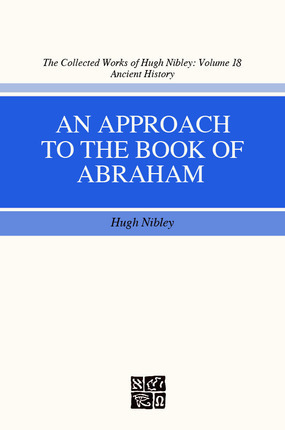What do you think?
Rate this book


The Collected Works of Hugh Nibley contains Nibley s early work on the Book of Abraham and the Joseph Smith Papyri. The volume contains diverse essays, including his three-year series of lengthy articles from the Improvement Era, "A New Look at the Pearl of Great Price." According to Nibley, "Until now, no one has done much more than play around with the bedizening treasury of the Pearl of Great Price. They would not, we could not make of the Book of Abraham an object of serious study. The time has come to change all that."
Produced at a breathtaking pace and originally published in a wide variety of places, Nibley s work remains basic reading for anyone interested in the Book of Abraham.
632 pages, Hardcover
First published January 1, 2009